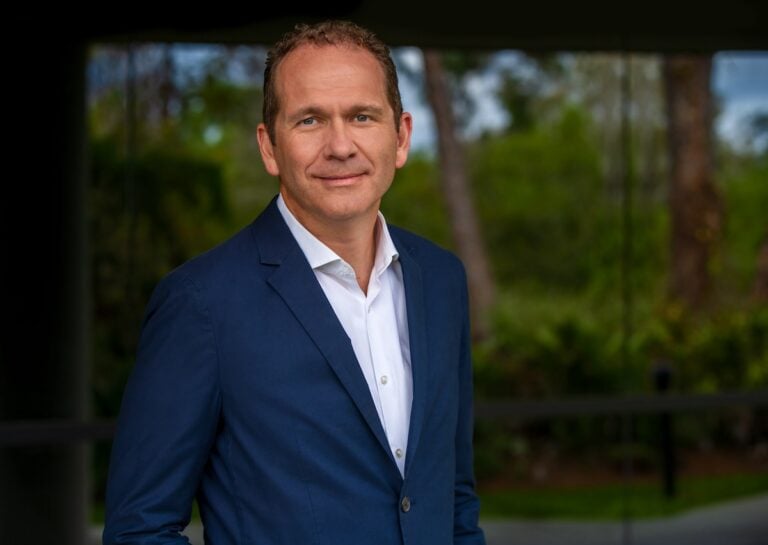
This article has been revised and corrected from the original version.
With more than 115 centers in Southern California, including more than 80 in the greater Los Angeles area, Mathnasium uses its proprietary Mathnasium Method to teach young people about math.
Mike Davis was named chief executive of Mathnasium in July 2022. Davis has led business-to-business and business-to-consumer companies in various industries, including multi-unit franchising, ecommerce/direct to consumer/third party logistics and media.
Please give us an overview of your franchise operation. For example, how did your company get started? How many franchisees do you have now? What are the financial requirements for potential franchisees?
Mathnasium was founded in the 1990s by education industry pioneers Peter Markovitz and David Ullendorff. Recognizing the significant gap between students’ learning skills and the math curriculum taught in schools, they aimed to address this disparity and provide students with a solid understanding of mathematics. Their vision was to help students succeed not only in math but also in life by instilling confidence and skills.
To bring their vision to fruition, Markovitz and Ullendorff conducted an exhaustive search for the right person to join them. They found Larry Martinek, a respected educator, teacher trainer and curriculum consultant, who became a key figure in realizing Mathnasium’s mission. Together with an expert team, they dedicated years to refining powerful teaching methods and materials, resulting in the development of the Mathnasium Method.
In late 2002, the first Mathnasium Learning Center was opened in Los Angeles, marking the beginning of their journey. Recognizing the success of their child-centered approach and the dedication of local center owners and staff, Mathnasium began franchising in 2003. The company quickly gained traction and recognition for its effectiveness in math education…
The brand currently has approximately 550 franchisees operating 1,100 math learning centers worldwide. Last year alone Mathnasium opened 59 centers and awarded 78 franchise agreements.
Getting started is relatively easy with minimal real estate, no inventory, and low staffing needs. Total startup costs are approximately $112,000-$149,000 through the first year, including the franchise fee. After signing the franchise agreement and gaining exclusive territory, Mathnasium provides an extensive training program as well as two people to help with startup and continued operations: a field support specialist and a franchise business consultant.
What do you think are the advantages of owning a franchise? What do you emphasize to prospective franchisees about the business they are about to enter?
Franchising provides entrepreneurs with several benefits. For instance, at Mathnasium, franchisees enjoy a straightforward and proven business model that includes a membership-style revenue stream. They also have access to a web-based service for broader customer reach, Mathnasium’s exclusive assessments, curriculum, and methodology, as well as comprehensive training and ongoing national and regional support. Joining a collaborative franchisee community, they benefit from a proven marketing system with cost-effective tools and simple strategies. Additionally, franchisees have the opportunity to own their own business with the potential for multiple locations, positively impact children’s lives, and contribute to the local community.
And the flip side: Any disadvantages?
Franchising offers a structured business model with established brand recognition, reducing the uncertainties of independent startups. However, a few elements to be aware of include initial cost and ongoing fees; at Mathnasium, these initial costs provide access to proven systems, training, and ongoing support. You should also be aware that there is a mutually beneficial franchisee-franchisor relationship as there is an element of shared brand reputation. Despite this, many franchisees find immense value in this partnership, enjoying the advantages of a well-established brand and a supportive network of like-minded entrepreneurs.
What advice would you give incoming franchisees?
Prioritize thorough research before committing to an opportunity. You should understand the franchise model, financial commitments and support provided prior to taking the next step. You should also seek advice and insight from successful franchisees in the industry or organization you are interested in. Finally, cultivate a strong work ethic and resilience, as challenges are inevitable.
Generally speaking, what do you believe is the future of franchising in California?
The future of franchising in California appears promising, driven by innovation, sustainability, and consumer preferences. As the state continues to prioritize eco-friendly practices and diverse offerings, franchises adapting to these trends are likely to thrive. Additionally, technology integration and a focus on local communities will play pivotal roles in shaping the landscape. With a resilient economy and a culture that embraces entrepreneurial spirit, California’s franchising future seems dynamic and adaptable to evolving market demands.
